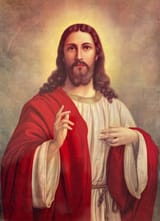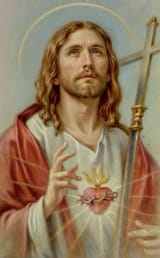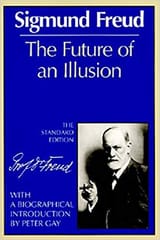>>24661699 (OP)
Probably something from the Jesuits. If you look at the most influential atheists of the enlightenment; Georges-Louis Leclerc, Comte de Buffon, Diderot, Jean Mesilier, Voltaire, they were all educated in Jesuit schools.
The Jesuits advocated for that type of wise-man/guru, Jesus character separated from the outside world as counter reformation legitimacy. The example for this wise-man guru character for Xavier and Loyola comes from reading Palingenius' Zodiacus Vitae - his criticisms of mass religion, his being influenced by the Moriae Encomium of Erasmus on the consistent mistreatment of a mass populous of 'fools' by organized religion as an eternal perspective, his distrust of monks and priests and clinging to the example of the Desert Fathers, living on the mountain top and loving wisdom. This is exactly what Jesuit means, and the propagation of Jesuit schools created the guru character in mass society, who must always act as a reformer based on what motivates him. Once I discovered this I finally figured out what Dostoevsky meant by 'Jesuitical' and how it connects to some of his other ideas: religion supposedly condones abuse by the powerful, this becomes personal abuse through bullying. The idea of the higher self and the guru is an attempt to escape victimization, and it becomes sort of a standard societal tactic to create independent reformers in an age of increasing privatization. That's why Dostoevsky defends criminals and is always critiquing this sort of alienating figure, which at least makes sense when it comes to Russia - probably the only true universal empire built on genuinely positive ideals and motivations.
>Christianity had long since degenerated into encouraging the acceptance of suffering and submission to tyranny as practised by the kings of France: injustice was explained away as being the will of an all-wise Being.[10] None of the arguments used by Meslier against the existence of God were original. In fact, he derived them from books written by orthodox theologians in the debate between the Jesuits, Cartesians, and Jansenists. Their inability to agree on a proof for God's existence was taken by Meslier as a good reason not to presume that there were compelling grounds for belief in God
Jesuits invented atheism. Which is relevant in the sense of an immanent higher self instead of a transcendental god. Literally - direct followers of Jesus




